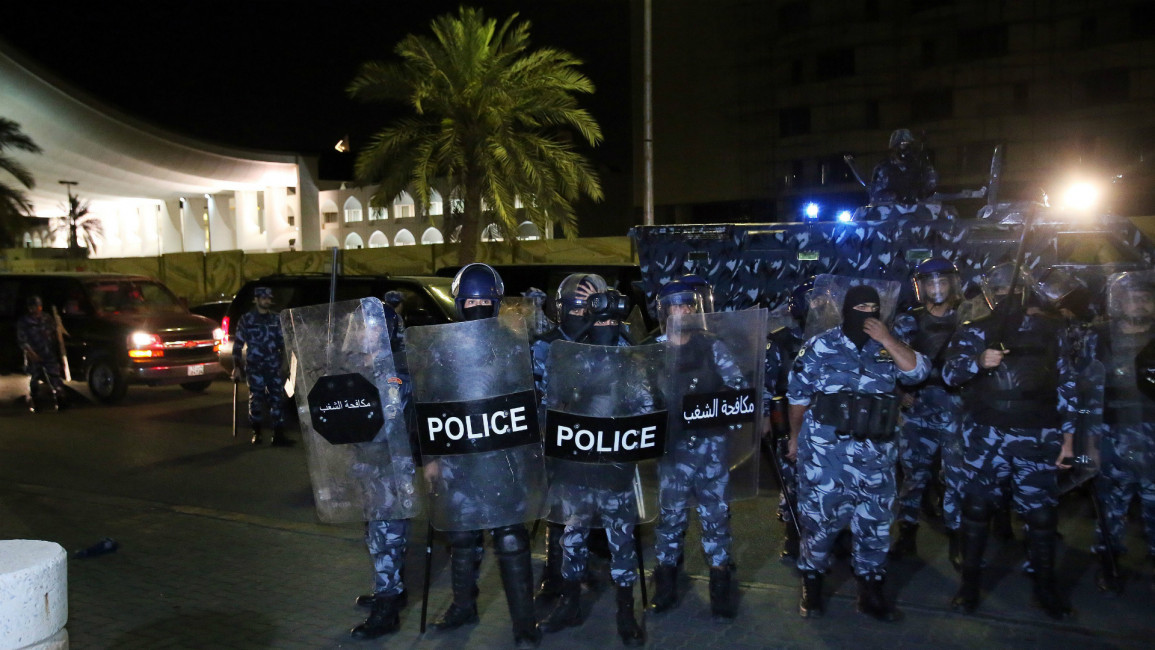
Keeping power in check: this week in human rights
The Kuwaiti government has issued a decree which closed down the Kuwait chapter of Transparency International, an NGO that exposes corporate and political corruption.
The group had been accused of "intervening in politics" by monitoring corruption within the country - but the situation isn't going to be straightforward in a region that has corrupt governments, and where freedom of speech isn't respected as a fundamental right.
"Kuwait has put in question both its willingness to tolerate criticism and its commitment to combat corruption. This looks like a classic case of shooting the messenger as a substitute for tackling the real problem," said Joe Stork, deputy Middle East and North Africa director at Human Rights Watch.
Twitter Post
|
New IS techniques
Just when you think you've seen it all, this week the Islamic State group released another of its slick-edited clips with horrific content.
A group of Iraqi men accused of being spies are forced in the video to enter a black steel cage, before they are slowly lowered into a swimming pool until they have drowned.
The video is shot with waterproof cameras placed in the pool, showing the men's torment in their final moments. The cage is eventually raised to the surface, showing the men lying motionless within.
It doesn't stop there.
Two further brutal techniques are shown in the video. In one, IS fighters lock men in a car then shoot it with a rocket-propelled grenade. Elsewhere, explosive beheadings - fastening explosives around the victims' necks before the inevitable detonation - demonstrate the latest grim twist in a long-reviled technique of torture and death known as necklacing.
Twitter Post
|
Gaza's children: One year on
The publication by the UN of details surrounding Israel's war on Gaza last year sparked uproar this week - but one fact remains clear - the devastation caused to the children of Gaza.
The Israeli assault killed 551 Palestinian children and injured 3,436. More than 1,500 were orphaned.
Israel destroyed 18,000 homes and half of all education facilities in the besieged Strip - 261 of 520 schools, kindergartens, and university buildings were hit, according to the UN.
The only school for children with disabilities was also a target.
Almost one year since the fighting, there has been very litte reconstruction of the seriously damaged homes and schools, due to import restrictions and low donor funds.
Twitter Post
|
The one-year anniversary of the assassination of Salwa Bugaighis
Human Rights Watch has paid tribute to Salwa Bugaighis, a prominent women's rights activist who was assassinated in Libya on June 25, 2014.
The Libyan lawyer and human rights activist had more than one battle on her hands: she challenged the extremist militias with her image, despite the ongoing threats and years of standing up to the dictatorship of Gaddafi.
Salwa was a role model indeed, not just for Libyan women, but for also many more women like herself across the Middle East and further afield.
Salwa leaves behind a husband, who was abducted after the ambush on their home in Benghazi, and three children.
"But as we promised her in Benghazi during the first days of the revolution, we will remain alongside Libyan activists, fighting for a better human rights future for all Libyans," said Peter Bouckaert, emergencies director at Human Rights Watch.
Twitter Post
|
We'll continue to keep our eye on human rights transgressions across the region. If you want to share any information or bring our attention to any campaigns please tweet us at @alaraby_en.


